Amidst the fallen leaves, Sreelekha encountered a flying snake that revealed deeper reflections on their relationship with nature, prompting a transformative awakening—an exclusive for Different Truths.
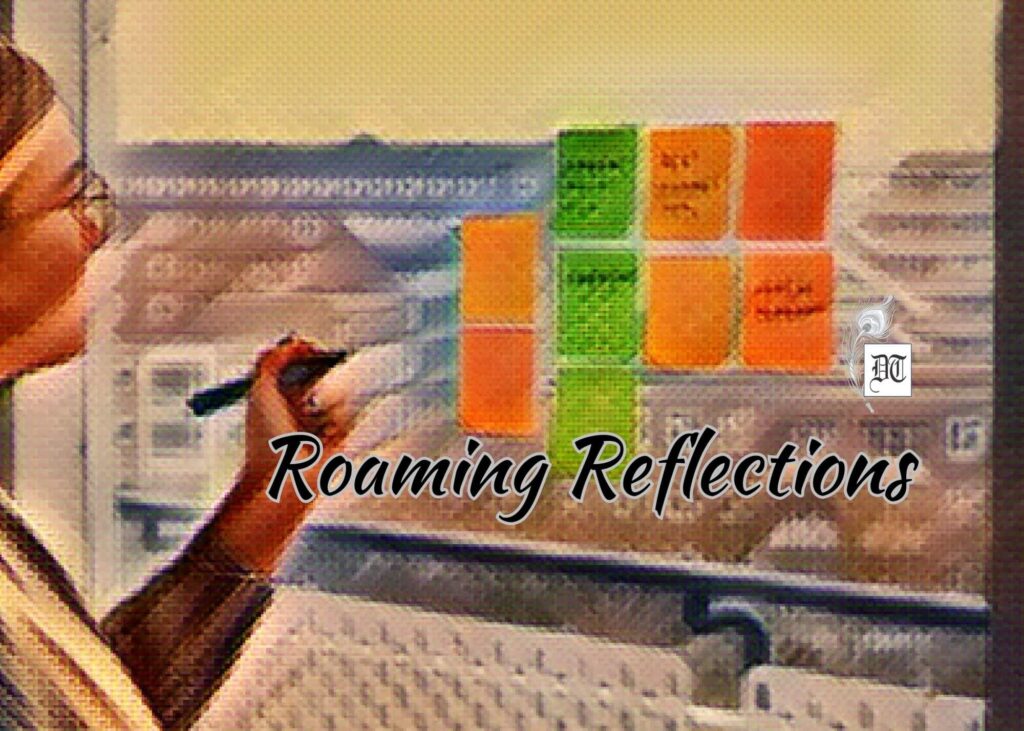
I walked cautiously over the withered leaves — shades of brown and yellow interspersed with a few green ones—that had fallen on the grey, concrete floor of our backyard from the fig trees—located in the adjacent, uninhabited forest area—that leaned onto the wall at our end, demarcating the boundary of our biotechnology laboratory. Some of the dried leaves made a crunching, crackling sound under my feet as I stepped over them.
It was early autumn when the quiet, mid-morning sunshine—still abundant—mellowed down its sweltering heat and the cool wind blew gently. There was a narrow, lonely passage—mostly unfrequented by people—that led to the washroom at the rear end of the backyard. I shivered from head to foot as I proceeded towards the washroom, sensing the presence of a sinister entity but my mind refused to pay attention to the growing suspicion and wished to make it through the passage unhindered. I could feel myself tense up.
Though I assured myself that there was nothing to worry about, I stared anxiously at the heap of dry leaves that lay on the ground. All of a sudden, as I apprehensively pushed myself forward, I felt as if I had placed my feet on something slippery other than the fallen leaves, and almost immediately a blackish rope sprang up high in the air, above my head. Alarmed, I jumped to my feet instantaneously along with it. After landing on the ground, it took me a while to figure out what I witnessed, and as soon as I did, a trembling came upon me.
It was a shining black, slender snake, about four feet in length, taking a flying leap at the six-foot-high wall…
It was a shining black, slender snake, about four feet in length, taking a flying leap at the six-foot-high wall, beside the passage, but didn’t get over it, and fell on the ground. I felt ill with a violent palpitation of the heart, as a shriek of terror intended to burst out from my lips, but failed to do so. I tried hard enough to shout—a cry for help and mercy—but my voice died in my throat. What the snake was thinking at the moment was an imponderable mystery, hard to unravel. Intuitively, I could make out that the snake was as frightened as I was, evident in its lidless, lusterless eyes—contrary to the popular belief of gleaming ones—and quivering form.
Suddenly, the snake coiled around my neck—a cold, clammy feeling—almost on the verge of strangling me; seized my head in its jaws—violating, agonising me to the core—while the fangs pierced deep into my skin, followed by an inexplicable burning sensation all over my body. Eerily, like an unaccountable escape from a nightmare, showing a grimace of hate and rage, it finally released me from its grip, and I felt ruined, ravaged, bearing scars from the battle.
I opened my eyes to find that the snake had cast its eyes on me, appearing to recoil before me…
I opened my eyes to find that the snake had cast its eyes on me, appearing to recoil before me or perhaps inching its way forward and was probably only a foot away from me. Pausing for a moment, it drew back its head, again jumped up in the air, and moved sideways towards the direction of the washroom. Being like one possessed, I followed the snake as it mounted the steps in the same fashion and entered the washroom. Unsure of my next course of action, I bolted the door from outside and rushed back to the safety of the biotechnology laboratory.
“What’s the matter?” A colleague asked, seeing me panting for breath.
“I…I encountered a snake in the backyard.” I stammered, scared—probably a little louder than a whisper—unable to think clearly. “I have locked it in the washroom.” I continued, while all the eyes were fixed upon me.
“What?” Another colleague joined in.
They offered me a glass of water. Panic-stricken, I hurriedly gulped down the water and spilt some of it, drenching my white lab coat. It calmed my senses to a certain extent, and I narrated the entire incident.
“You are a brave soul,” continued the second one and all agreed in unison, as if I had won over something unconquerable.
“You must have stepped on the snake’s tail. They say that if anyone does that then they sting back. You have had a narrow escape.” One of them said prophetically.
“Do you think it’s a poisonous one?” I asked, still recovering from the state of shock.
“Not sure. But some of them are,” another replied.
I recalled the previous incident that had happened in the laboratory… when a lab attendant found a snake…
I recalled the previous incident that had happened in the laboratory, the other day, when a lab attendant found a snake near our drinking water pitcher and how he narrowly escaped its attention and carefully directed it out. For the past few days, we had been hearing about snakes visiting the zone near our lab which was adjacent to the forest.
It had been quite a few years that a part of the forest area was cleared, and a biotechnological park was established, where research laboratories had been built to further the experiments that had been initiated in big cities for better productivity of the crops along with experimental fields where those were being cultivated. There were gardens where several trials were conducted mostly on trees—banana, mango, sapota, amla, oranges—that yielded highly nourishing, flavourful and long-lasting fruits as part of our successful endeavours.
Along with stories of supernatural presence in the area, we heard that on warm days, the snakes in brumation came out of their dens to bask in the sunshine, and during the monsoon season they frequented the roads that led to these laboratories and offices inside the premises. Surprisingly, none of them caused any harm to human beings. Being a city-bred researcher, I had seldom encountered snakes other than those that were displayed in the zoo and that too inside glass boxes, behind well-protected barriers, from a safe distance.
On hearing the entire episode, my boss Sukumar came running to see me.
“We have called the gardeners and cleaners who work over here. They will take care of the snake.” He said, his voice heavy with concern.
“Take care of the snake. You mean…” My voice trailed off.
“Yes. What else can we do?” He stroked his beard thoughtfully and looked at me.
I felt a surge of pain… on realising the consequence of my action.
I felt a surge of pain, a recurring guilt piercing my heart on realising the consequence of my action. If I hadn’t closed the door from outside, the snake would have gone back to its den. It was true that it was we who had encroached upon their area—destroyed the warmth, comfort of their snug, cosy shelter—and not them.
After some time, a group of gardeners and cleaners came, wearing beige-coloured uniforms, with long sticks in their hands.
“We’ll take care of everything. You don’t worry.” They assured me, their voices beaming with enthusiasm.
“Please don’t harm the snake,” I said feebly, unable to raise any remorse or sentiment in them, to which they let out a loud guffaw as if I had uttered a joke.
A swarm of people, mostly lab attendants and farm workers came along, envenomating the atmosphere…
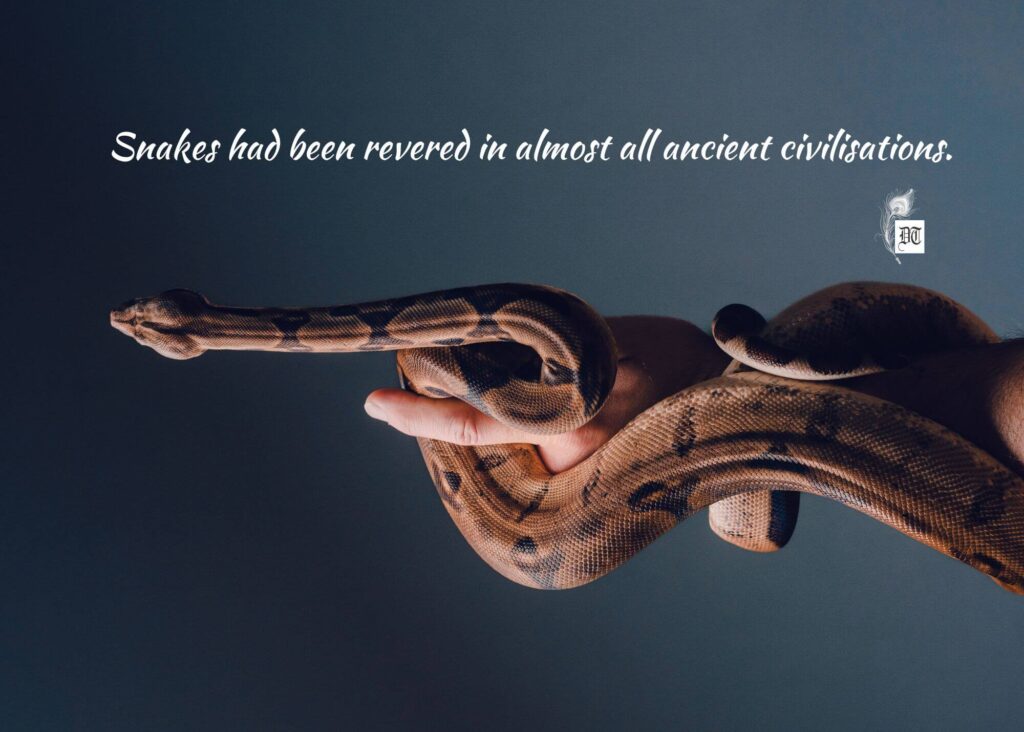
A swarm of people, mostly lab attendants and farm workers came along, envenomating the atmosphere by supporting our evil design, excited faces anticipating the ill fate of the snake, being harassed at the hands of the powerful human beings for no fault of it. Frightened to the core, I couldn’t ask them to release the snake, as I wondered if it might return to the same place once it was free. After all, we were petty, cowardly folks with little consideration for the adverse effect that our insatiable needs had on the seemingly powerless nature, leaving the animal kingdom—dependent on the flora—doomed to extinction.
As I stood there, in my heart of hearts the truth dawned on me that it was time that we needed to reappraise our actions, causing harm to our fellow living species on Earth as well as ourselves in the long run. I heard stories of the dwindling population of snakes due to the loss of their natural habitat, indiscriminate poaching for their skin and venom, and out of fear for their poisonous sting as we were experiencing at the time, wishing to put an end to our discomfort about sharing space with them.
Snakes had been revered in almost all ancient civilisations. In Hindu mythology, King Cobra had been divine and therefore, under no circumstances they were to be persecuted. I recalled having read about Asclepius, who was venerated by the ancient Greeks as a god of healing who could bring the dead back to life and his cult involved the use of snakes.
For the ancient Greeks, snakes were sacred, enigmatic, and well-informed…
For the ancient Greeks, snakes were sacred, enigmatic, and well-informed, knowledgeable beings, with innate curative power. As the legend goes, Asclepius healed a snake from encroaching death, and in gratitude, the snake quietly whispered his knowledge to treat and cure diseases into his ear. Asclepius was able to revive the famous war hero Philoctetes from a deadly snake bite, who then continued fighting in the Trojan War.
Snake venom has been used in traditional medicine for thousands of years. A large number of snakes were slayed for toxins obtained from their venom that were formulated into drugs used for the treatment of cancer, hypertension and thrombosis, leaving the ecosystem in jeopardy. Considered farmers’ friends, the snakes devoured rodents and helped to preserve the grains. The task that we had undertaken that day was no different from that of the unconcerned humans who killed the snakes for ulterior motives and refused to understand the relevance of balance that was much needed in the environment.
Sukumar and all my colleagues accompanied the group that had come determined to teach the snake a lesson for intruding into the territory we called our own. I knew that animals like these were mostly driven by their instinct and seldom had the power to comprehend the danger, a life-threatening one like this one.
A sense of disquietude reigned, a symptom of a deeper malaise, and a feeling overwhelmed me…
A sense of disquietude reigned, a symptom of a deeper malaise, and a feeling overwhelmed me that we had trifled with the affection showered on us by Mother Earth; the dignity of our environment; the indissoluble connection we had with nature—its breathtaking mountains; gigantic oceans; mystifying forests; enthralling rivers; captivating plants, trees, animals, birds—undermining the mighty power of the elemental forces to retaliate against our malign intent, wreak havoc and render us helpless in the advent of such catastrophe. The heart besieged with sorrow knew that we had trespassed upon the territory that wasn’t entirely our own, violating the unsaid, untold—yet existing—law of peaceful coexistence, and had invaded with an unholy purpose of destroying it according to our convenience and aspirations.
We waited with bated breath as the four of them made a brisk, dispassionate move forward amidst a murmur of voices behind them and positioned themselves—at the foot of stairs leading to the washroom—with the sticks ready for the face-off. One of them went ahead to open the door of the washroom. As he was about to release the door, a voice thundered behind us, “Stop, stop, I won’t allow you to do anything of this sort over here.”
“Who the hell are you?” The four men said in unison, as they cast off their masks of politeness, but almost instantly, their expression changed from disgust to that of embarrassment.
We all turned around and craned our necks to get a glimpse of the person who was talking.
We all turned around and craned our necks to get a glimpse of the person who was talking. To our surprise, it was Anil, the owner of the biotechnological park.
“I will not allow anyone to kill any of these innocent creatures. Open the door immediately, and let it go away.” Anil rejoined, vehemently opposing, pointing his index finger towards the washroom door, putting an end to the tragic, distressed catastrophe that was about to befall the poor creature.
Stunned, the group of four people outside the washroom stared blankly at him. Anil’s secretary came forward and opened the door all of a sudden. The four of them sprinted towards the area where we were standing, and along with them, we all stepped back in fear, as we waited in anticipation for the snake to come out. The door was left ajar but there was no trace of the snake.
Suddenly, after a while, the snake emerged, wriggled down the stairs and in the same fashion that I had seen before, it jumped high up and crossed the wall and landed on the other side of it, releasing the air of bitterness and burdens of selfish, ailing minds housing countless worries, aggression and malevolent intentions.
Picture design by Anumita Roy

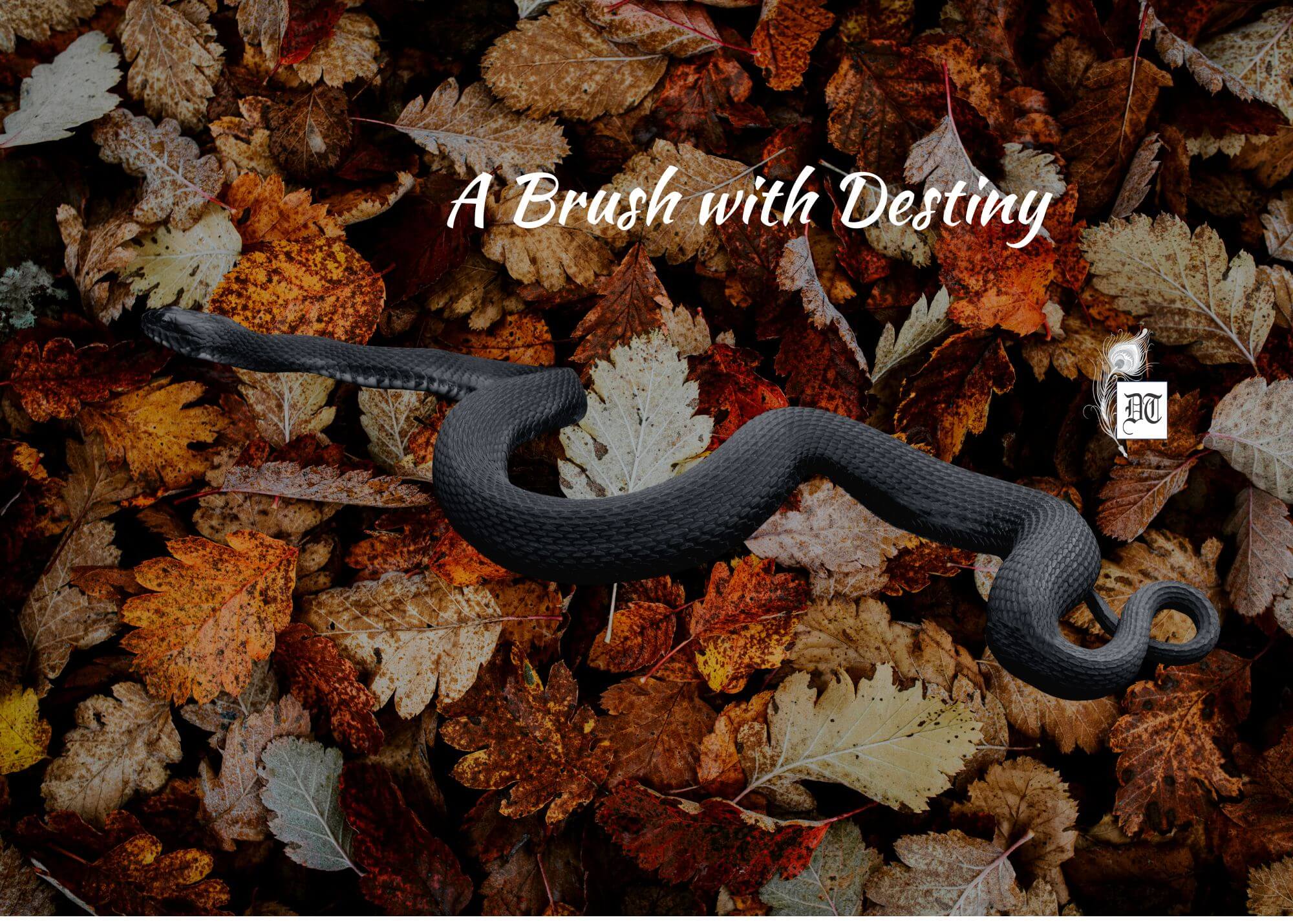
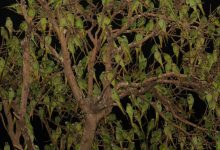


 By
By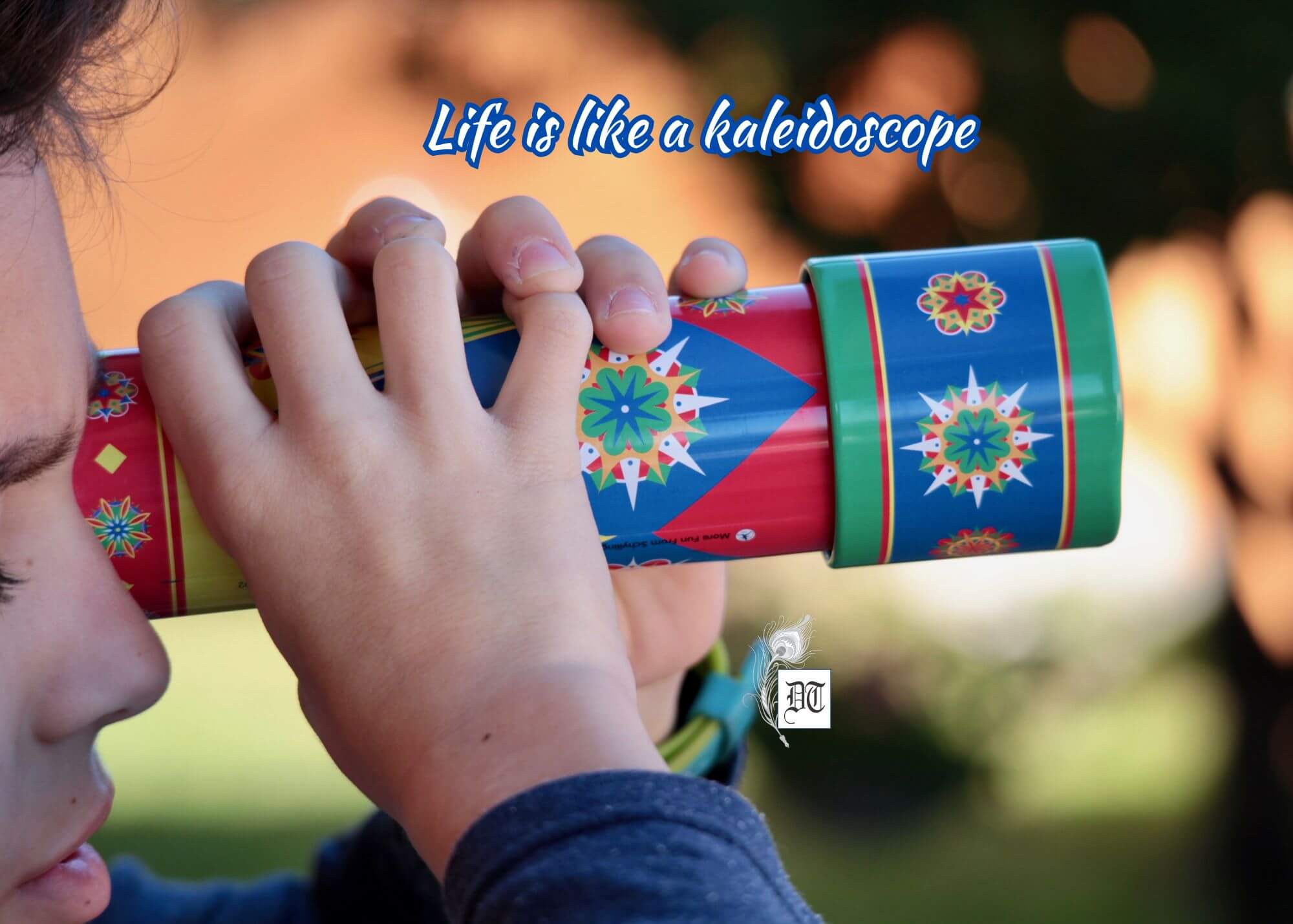
 By
By
